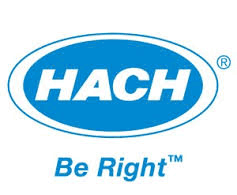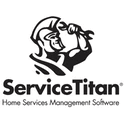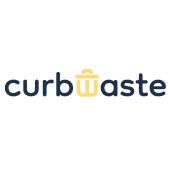Top Waste Management Softwares
Waste Management software streamlines the complex process of handling waste, ensuring efficient disposal and recycling. These solutions assist organizations in managing waste collection, transportation, and processing while maintaining compliance with regulations. By automating everyday tasks such as scheduling and route optimization, they enhance operational efficiency and reduce costs. Additiona... Read More
41 companies found
Product Description
Hach software is designed to help businesses streamline their operations and manage their data more effectively. This tool allows users to centralize all their important information in one place, making it easy to access and analyze. By integrating seamlessly with existing systems, Hach helps to reduce manual work and improve overall efficiency. Users can count on features that enable real-time m... Read More
Users
- • No Data
Industries
- • No Data
Market Segment
- • No Data
ServiceTitan
Product Description
ServiceTitan is a software designed to simplify the daily operations of service businesses such as HVAC, plumbing, electrical, and other home service industries. It streamlines tasks like scheduling, dispatching, billing, and reporting into one easy-to-use platform, helping business owners and their teams save time and reduce errors. The software offers features that help manage customer relatio... Read More
Users
- • No Data
Industries
- • No Data
Market Segment
- • No Data
VelocityEHS
Product Description
VelocityEHS is designed to help businesses manage their environmental, health, safety, and sustainability needs more efficiently. With VelocityEHS, companies can easily keep track of and comply with regulations, avoid workplace incidents, and improve overall operational performance. The software offers a suite of tools that are easy to use, even for people who aren't tech-savvy. This makes it a p... Read More
Users
- • No Data
Industries
- • No Data
Market Segment
- • No Data
Product Description
AMCS software is a reliable and efficient solution designed specifically to help businesses in waste management and recycling industries streamline their operations. Our software focuses on the needs of companies managing logistical challenges, customer service, and regulatory compliance, all while trying to maximize productivity and profitability. With AMCS software, users can easily coordinate ... Read More
Users
- • No Data
Industries
- • No Data
Market Segment
- • No Data
Product Description
CurbWaste is a software solution designed with waste management companies in mind. It aims to streamline everyday operations, improving efficiency and communication across the board. By going digital, CurbWaste helps companies move away from paper tickets and manual data entry, reducing errors and saving time. One key feature is its user-friendly interface, which means your team can quickly adapt... Read More
Users
- • No Data
Industries
- • No Data
Market Segment
- • No Data
Product Description
GateHOUSE software transforms the way businesses manage and secure their digital assets. Designed with user-friendly features, this platform streamlines the complexities of digital management into intuitive steps. It helps organizations keep track of their vital information, ensuring everything is organized and accessible when needed. GateHOUSE offers a centralized system where businesses can st... Read More
Users
- • No Data
Industries
- • No Data
Market Segment
- • No Data
Product Description
Leanpath is a software designed to help commercial kitchens and foodservice operations reduce food waste. It does this by providing tools and insights that make it easier to track and manage what gets thrown away. Think of Leanpath like a helpful assistant that keeps an eye on the food you buy, prepare, and discard. When you use Leanpath, you're able to see detailed reports about the types and a... Read More
Users
- • No Data
Industries
- • No Data
Market Segment
- • No Data
FieldAware
Product Description
FieldAware is a modern field service management software designed to help businesses improve their service delivery and overall performance. The software is specifically created for companies with field operations, such as maintenance, repair, and installation services. FieldAware aims to simplify the complexities of managing a mobile workforce. With its intuitive features, businesses can easily... Read More
Users
- • No Data
Industries
- • No Data
Market Segment
- • No Data
Whip Around
Product Description
Whip Around is a user-friendly software designed to simplify the management of fleet vehicles. It's built for fleet managers and business owners who want to ensure their vehicles are in top shape without spending a lot of time on paperwork or manual processes. This software makes it easy to track vehicle inspections, maintenance needs, and compliance requirements in one place. With Whip Around, c... Read More
Users
- • No Data
Industries
- • No Data
Market Segment
- • No Data
Cro Software Solutions
Product Description
Cro Software Solutions is a practical and user-friendly SaaS company focused on providing essential tools to streamline and improve operations for small and medium-sized businesses. Our goal is to simplify your day-to-day tasks by offering software that’s easy to use and doesn’t require any extensive training. At Cro Software Solutions, we understand the challenges of running a business and we a... Read More
Users
- • No Data
Industries
- • No Data
Market Segment
- • No Data
What are the key features of Waste Management software?
Waste Collection Scheduling
Efficient waste collection scheduling is a fundamental feature of Waste Management software. This functionality allows users to plan and optimize waste pickup routes. It ensures minimal distance travel, reducing fuel costs and carbon emissions. Businesses can adjust schedules dynamically based on changing needs and unforeseen occurrences.
Inventory Management
Waste Management software provides robust inventory management features to track and manage waste containers, equipment, and other assets. It allows organizations to maintain optimum levels of necessary resources, ensuring smooth operation while minimizing excessive stock and related costs.
Real-Time Tracking and Monitoring
A critical feature of Waste Management software is real-time tracking and monitoring. This feature provides live location tracking of waste collection vehicles. It offers data-driven insights about the status of waste pickup, amounts collected, and location performance. Real-time data helps in proactive decision-making and optimizing operations.
Regulatory Compliance and Reporting
Compliance with environmental regulations is essential for waste management operations. Waste Management software aids in compliance by automating record-keeping and generating necessary reports. It helps organizations stay updated with local, state, and federal regulations, ensuring adherence and avoiding penalties.
Waste Stream Analysis
Waste Management software often includes tools for waste stream analysis. This feature helps in understanding the composition and sources of waste materials. By analyzing waste streams, companies can work towards reductions and optimize recycling efforts. It supports sustainability goals by identifying areas for improvement in waste reduction.
Customer Management
Many Waste Management software solutions incorporate customer management features. This enables seamless management of customer accounts, enabling invoicing and service history tracking. Customer portals allow clients to manage their service requests independently, improving customer satisfaction.
Automated Billing
Automated billing is an essential characteristic of Waste Management software. This functionality ensures accurate billing based on services rendered and waste quantities collected. It reduces manual errors and speeds up the billing process, enhancing revenue management and operational efficiency.
Data Analytics and Reporting
Data analytics features in Waste Management software provide actionable insights into operational performance. Detailed reporting capabilities enable organizations to understand trends, monitor KPIs, and identify areas for optimization. Effective use of analytics aids in strategic planning and improving overall efficiency.
Fleet Management
Fleet management capabilities in Waste Management software are vital for overseeing waste collection vehicles. It includes features like vehicle maintenance scheduling, fuel consumption monitoring, and driver performance evaluation. Efficient fleet management ensures reduced downtime and operating costs.
Integration Capabilities
Integration capabilities allow Waste Management software to connect with other business systems. This seamless flow of information between different platforms enhances overall operational efficiency. It ensures data consistency across various business functions, facilitating better management and decision-making.
User-Friendly Interface
A user-friendly interface is a critical feature of effective Waste Management software. It provides intuitive navigation and easy access to key features and functionalities. A well-designed interface reduces training time and improves user adoption rates, enhancing productivity.
Sustainability Tools
Sustainability tools in Waste Management software empower organizations to set and track sustainability goals. These tools offer insights into recycling rates and carbon footprint implications, helping businesses align with environmental objectives. Sustainable waste practices are made easier and more integrated into everyday operations.
How does Waste Management software help in reducing operational costs?
Waste Management software is a crucial tool for organizations seeking efficient ways to manage and reduce operational costs associated with waste management. Here are several ways how Waste Management software facilitates cost reduction:
Streamlined Processes
Waste Management software automates and streamlines many processes, including scheduling waste pickups, tracking disposal activities, and managing routes. This automation reduces the need for manual intervention, minimizing errors and saving time. By optimizing routes, organizations can lower fuel costs and vehicle wear, directly impacting operational expenses.
Improved Resource Allocation
With Waste Management software, businesses can efficiently allocate resources by analyzing waste generation patterns. This data-driven approach ensures that personnel and equipment are deployed optimally, leading to reduced labor costs. Additionally, the software assists in predictive maintenance, preventing costly equipment breakdowns and prolonging asset lifespan.
Enhanced Compliance and Risk Management
Maintaining compliance with regulatory standards is essential for avoiding fines and legal fees. Waste Management software assists organizations in tracking and documenting all waste disposal activities, ensuring adherence to environmental regulations. It alerts users to compliance risks, reducing potential liability and associated costs.
Data-Driven Decision Making
The software provides detailed reports and analytics, enabling organizations to make informed decisions about waste reduction strategies. By understanding waste streams and materials usage, businesses can identify cost-saving opportunities such as recycling or reuse programs. These insights lead to efficient waste management practices and cost reduction.
Waste Volume Reduction
By uncovering patterns in waste generation, Waste Management software helps in identifying areas where waste can be minimized. This reduction in waste volume not only contributes to cost savings on disposal fees but also supports sustainability initiatives. Companies can implement targeted waste minimization strategies, preventing excess waste generation.
Inventory Management
The software tracks the inventory of waste containers and other related equipment, preventing over-purchasing and optimizing asset utilization. Proper inventory management ensures that organizations only invest in what's necessary, thus cutting down on extraneous expenses associated with excess inventory.
Reduced Administrative Burden
Administrative tasks related to waste management can be time-consuming and costly. Waste Management software automates documentation, reporting, and billing, reducing the administrative workload. This automated documentation ensures accurate record-keeping, resulting in fewer discrepancies and reduced administrative overhead.
Real-Time Monitoring and Alerts
The software provides real-time monitoring of waste management activities, allowing for immediate adjustments and interventions. Alerts for missed pickups, equipment malfunctions, or compliance issues ensure that any disruptions are addressed promptly, preventing potential cost escalations due to delayed actions.
Optimization of Recycling Programs
Effective recycling programs contribute to cost savings by reducing disposal fees and creating revenue opportunities through the sale of recyclables. Waste Management software assists in tracking and managing recycling activities, ensuring maximum efficiency and potential revenue generation. By organizing recyclable materials effectively, operations become more cost-efficient and environmentally friendly.
In summary, Waste Management software reduces operational costs by optimizing processes, enhancing resource management, ensuring compliance, and promoting waste reduction. Through these efficiencies, the software provides substantial cost savings for organizations, allowing them to manage waste effectively while adhering to sustainability objectives.
Can Waste Management software improve regulatory compliance?
Waste Management software plays a vital role in enhancing regulatory compliance for organizations involved in waste handling and disposal. By leveraging technological advancements, this software addresses various complexities associated with adhering to environmental regulations and standards.
Centralized Data Management
Waste Management software centralizes data collection and management, ensuring that organizations maintain accurate records of waste generation, storage, transportation, and disposal. This centralized system facilitates seamless tracking and ensures data integrity, which is crucial for compliance with regulatory mandates. It automates the documentation processes, eliminating human errors and enhancing the reliability of records.
Streamlining Documentation and Reporting
Efficient documentation and timely reporting are critical elements of regulatory compliance in waste management. Waste Management software automates the preparation of mandatory reports, ensuring they are generated correctly and submitted on time. This automated reporting function reduces the risk of non-compliance due to late or inaccurate submissions, and it aligns organizational practices with governmental and environmental standards.
Real-time Monitoring and Alerts
Waste Management software often includes real-time monitoring features that track waste-related activities and parameters. These systems can provide alerts when certain thresholds are approached or exceeded, enabling immediate action to prevent regulatory violations. This level of monitoring ensures that any deviations from expected norms are quickly addressed, supporting sustained regulatory compliance.
Regulatory Compliance Modules
Many Waste Management software solutions feature built-in regulatory compliance modules that are regularly updated to reflect current legislation. These modules guide organizations in adhering to applicable laws and regulations, ensuring all processes meet legal standards. The software's ability to stay current with evolving regulations minimizes the risk of compliance lapses.
Audit Readiness
Ensuring audit readiness is another advantage of deploying Waste Management software. By maintaining comprehensive, up-to-date records, organizations can simplify the audit process, making it faster and more efficient. Accurate record-keeping provided by such software ensures transparency, which is crucial for passing audits and inspections conducted by regulatory authorities.
Integration with Compliance Frameworks
Waste Management software can be integrated with broader compliance management frameworks within an organization. This integration provides a holistic view of compliance efforts across multiple domains. It ensures waste management practices are aligned with overall organizational compliance strategies, leading to a unified approach towards regulatory adherence.
Training and Empowerment
Many Waste Management software platforms offer training modules to educate employees about compliance requirements. Through guided learning paths and regular updates, staff become more competent in regulatory practices, further supporting an organization's compliance posture. Empowered employees contribute positively to maintaining standards and reducing the risk of violations.
Key Benefits for Compliance
Ultimately, Waste Management software aids organizations in maintaining exacting standards that regulatory bodies demand. By automating processes, improving data accuracy, and facilitating continual oversight, these software solutions ensure that waste management practices are always compliant. As regulations grow increasingly complex, Waste Management software becomes an indispensable tool for staying aligned with current laws.
Through these mechanisms, Waste Management software significantly enhances an organization's capacity to meet and maintain regulatory compliance, fostering a systematic and reliable approach to managing waste responsibly.
What types of businesses benefit most from using Waste Management software?
Municipalities and Local Governments
Municipalities and local governments are among the primary beneficiaries of Waste Management software. These entities are responsible for maintaining public health and safety through effective waste disposal practices. Waste Management software aids in optimizing collection routes, scheduling, and resource allocation, consequently reducing costs and improving efficiency. With the rising pressures of urbanization, municipalities require tools to scale their operations effectively while maintaining compliance with environmental regulations. By using Waste Management software, municipalities can track waste collection data, streamline processes, and promote sustainable initiatives in the community.
Manufacturing and Industrial Sectors
Manufacturing and industrial sectors generate significant volumes of waste, necessitating robust management solutions to handle various types of industrial by-products. Waste Management software is crucial in these environments as it ensures the efficient segregation, treatment, and disposal of waste materials. Furthermore, it aids companies in adhering to strict environmental regulations, tracking waste generation, and reducing carbon footprints. By optimizing waste management practices, manufacturers can minimize waste disposal costs and enhance operational efficiency. Ensuring compliance with legal obligations is not only crucial for avoiding penalties but also critical for fostering corporate responsibility and sustainability.
Waste Collection and Recycling Companies
Companies specializing in waste collection and recycling are inherently tied to the effective use of Waste Management software. These organizations use such tools to manage vast and complex logistics networks essential for waste collection, transportation, and processing. Detailed tracking features allow them to monitor operational efficiency, manage resources effectively, and maintain transparency with stakeholders. Waste Management software lets these companies optimize routes and schedules, handle billing and customer interactions, and manage recycling processes more effectively. In addition, accurate data analytics enable these businesses to implement data-driven strategies for improving overall operational efficiency.
Healthcare Facilities
Healthcare facilities, including hospitals and clinics, produce hazardous waste that requires specialized handling and disposal to ensure public health and safety. Waste Management software assists in tracking waste from generation to disposal, ensuring compliance with stringent regulatory standards. This is vital to prevent contamination risks and penalties for non-compliance. By automating record-keeping and monitoring, healthcare facilities can maintain accurate records while minimizing human error. As a result, these facilities can focus on delivering patient care, confident in their waste management practices.
Retail and Hospitality Industries
Retail and hospitality sectors encounter diverse waste challenges ranging from packaging materials to food waste. Waste Management software helps businesses in these industries streamline waste segregation, implement recycling programs, and minimize waste generation. By optimizing inventory and waste processes through software solutions, companies can reduce operational costs and promote sustainability practices. Additionally, such software can assist in analyzing waste data, providing insights into waste trends, and enabling the implementation of waste reduction strategies. These industries can significantly improve their environmental impact and brand image by leveraging technology to manage waste transparently and efficiently.
Construction and Demolition Enterprises
Construction and demolition businesses benefit significantly from implementing Waste Management software, as they handle massive amounts of construction debris. This software facilitates waste tracking, ensures regulatory compliance, and optimizes resource utilization through real-time data analysis. By monitoring project-specific waste generation, these enterprises can improve project efficiency and promote sustainable building practices. Waste Management software aids them in identifying recyclable materials, segregation processes, and effective disposal, thus fostering eco-friendly operations in this heavily resource-intensive sector.
How Does Waste Management Software Enhance Data Tracking and Reporting?
Waste Management software revolutionizes the processes involved in tracking and reporting waste disposal and recycling operations. By integrating advanced technologies and automating various functions, it significantly streamlines data management, providing valuable insights.
Comprehensive Data Collection
Waste Management software enables rigorous data collection by integrating with numerous data sources and IoT devices. Sensors installed on waste management equipment can relay information about fill levels, pickup schedules, and routes. This ability to capture data from multiple touchpoints ensures that all relevant parameters are documented in real-time. The software centralizes this data, simplifying access and reducing the risk of human error associated with manual data entry.
Real-Time Monitoring
The real-time monitoring features of Waste Management software empower operators to track waste activities instantaneously. Continuous data feeds allow stakeholders to gain visibility over the status and location of waste containers, vehicles, and facilities. Real-time monitoring helps waste managers quickly react to changing circumstances, such as unexpected increases in waste volume or equipment malfunctions, ensuring operational efficiency and compliance.
Automated Reporting
Auto-generated reports are a hallmark of effective Waste Management software. This functionality enables automated collation and analysis of data, producing various report types tailored to organizational needs. Examples include diversion reports, carbon footprint analyses, and compliance summaries. By generating these reports automatically, waste management personnel save considerable time and guarantee consistency and accuracy, harnessing data for decision-making.
Enhanced Data Analytics
Analytics capabilities within Waste Management software transform raw data into actionable insights. This software employs sophisticated algorithms to visualize patterns and trends in waste production and management. Stakeholders can thus identify inefficiencies or emerging issues through enhanced data visualization. Analytics also facilitates predictive modeling, enabling organizations to anticipate future waste management needs by extrapolating current data trends.
Compliance Tracking
Waste Management software strengthens compliance tracking efforts by maintaining comprehensive records of waste disposal activities. It ensures organizations adhere to local, state, and federal regulations governing waste management. Automated alerts and reminders help organizations remain compliant by notifying them of upcoming regulatory changes or reporting deadlines. This compliant-ready environment reduces the likelihood of fines associated with regulatory breaches.
Improved Data Accuracy
The digital nature of Waste Management software minimizes human error, ensuring that all data recorded is more precise and accurate. Automated processes reduce reliance on human intervention, which can lead to errors in data entry or reporting. This high level of data accuracy enables waste management entities to make more informed decisions, affecting both operational efficacy and environmental compliance.
Increased Transparency
The transparency provided by Waste Management software promotes accountability among stakeholders. Clear data tracking and layered access systems allow both managers and regulators to scrutinize waste management operations thoroughly. Enhanced traceability not only satisfies regulatory requirements but also boosts public trust by demonstrating commitment to sustainable practices and ethical waste management.
In conclusion, Waste Management software serves as a pillar for modern waste management practices, enhancing data tracking and reporting through comprehensive data collection, real-time monitoring, automated reporting, enhanced data analytics, compliance tracking, improved data accuracy, and increased transparency. Each of these components contributes towards a seamless, informed, and efficient waste management process.
Is Waste Management software scalable for growing businesses?
Waste Management software is designed to streamline the complex processes of managing waste effectively. As businesses grow, their waste management needs become more intricate and demanding. Here, we'll explore the scalability of Waste Management software for growing businesses.
Scalability Across Business Sizes
Waste Management software is engineered with scalability at its core. It caters to small businesses with simple waste management responsibilities and large enterprises with multifaceted waste operations. Whether a business is handling minimal waste types or a broad spectrum, the software's foundational design can expand alongside business growth. Its robust architecture ensures that companies can manage increased waste volumes and types without needing to switch systems.
Integration with Existing Systems
Growing businesses often have existing systems in place. For seamless operation, Waste Management software typically offers integration capabilities. This ensures that as businesses expand and require more sophisticated systems for handling diverse operations, their waste management software can synchronize data, ensuring a unified workflow. Integration minimizes disruption and maintains efficiency across operational processes.
Adapting to Regulatory Changes
As businesses expand, they may encounter varying regulatory requirements. Waste Management software includes features to help businesses stay compliant across regions by updating automatically to reflect changes in laws and regulations. With scalability, the software accommodates additional compliance needs as businesses operate in different jurisdictions.
Customizable Reporting and Analytics
Growing businesses need more detailed insights to make informed decisions. Waste Management software supports this through customizable reporting and analytics features. As waste management demands get more complex, businesses can utilize the software's analytics tools to track performance and identify trends. This adaptability ensures that insights are relevant and tailored to the evolving needs of the business.
Multi-Location Support
For businesses that operate across multiple locations, Waste Management software provides multi-location support, a critical feature for scalability. This allows centralized management and provides an overview of waste operations across various sites. Businesses can manage multiple sites without compromising on effectiveness, ensuring consistent waste management practices whether locally or globally.
Cloud-Based Solutions
Cloud-based Waste Management software solutions enable scalability by providing businesses with the flexibility to increase or decrease resources based on needs. As businesses grow, cloud solutions support scalability by offering modular plans that adapt to fluctuating requirements, ensuring businesses only pay for the capacity they use.
Automation and Efficiency
Automation is a scalable solution embedded within Waste Management software. As businesses expand, automation handles increased tasks without additional human resources. Automated processes ensure scalable efficiency by maintaining consistent service levels regardless of the complexity or quantity of waste needing management.
Security and Data Management
Growing businesses require robust security and data management. Waste Management software is designed to handle increased data safely and securely as business operations scale. With data encryption and secure access features, businesses can be assured that their sensitive information is well-protected, even as their infrastructure and waste generation grow.
Overall, Waste Management software proves to be scalable for growing businesses by adapting to varied operational demands, ensuring compliance, facilitating efficient data management, and integrating seamlessly with existing systems. Its design and functionality align with the needs of businesses as they scale, supporting their growth trajectory through efficient and effective waste management solutions.
What are the environmental benefits of using Waste Management software?
Efficient Resource Utilization
Waste Management software enhances environmental sustainability by optimizing resource utilization. Organizations can track and manage waste streams effectively, thereby identifying opportunities to reduce waste production at the source. This leads to efficient use of raw materials and minimizes the extraction of new resources, conserving natural habitats and reducing the overall ecological footprint.
Reduced Landfill Usage
By employing Waste Management software, companies can improve recycling and composting processes, significantly reducing the volume of waste headed for landfills. This reduction not only decreases land usage and pollution associated with landfills but also mitigates the release of harmful greenhouse gases, such as methane, that result from the decomposition of organic waste in landfills.
Enhanced Recycling Processes
Waste Management software facilitates better sorting and categorization of waste materials, ensuring that more items are recycled rather than discarded. By improving recycling rates, this software helps divert waste from incineration and landfill sites, thus cutting down on pollution and conserving energy that would otherwise be used for producing new products from raw materials.
Lower Carbon Emissions
Effective waste tracking and management through Waste Management software can significantly decrease carbon emissions. By streamlining logistics, such as decreasing the number of waste collection trips, the software minimizes fuel consumption and emissions from transport vehicles. Furthermore, promoting recycling and reducing waste production directly impacts the carbon footprint by decreasing the energy needed for manufacturing processes.
Monitoring and Compliance
By utilizing Waste Management software, businesses can better monitor their waste processes and ensure compliance with environmental regulations. This proactive approach prevents penalties and supports the protection of ecosystems from hazardous waste leaching into soil and groundwater. As a result, organizations contribute positively to environmental conservation by maintaining standards that limit harmful emissions and pollutive practices.
Data-Driven Decisions
The analytical capabilities of Waste Management software allow organizations to make informed, data-driven decisions. By understanding waste generation patterns and identifying key areas for improvement, companies can implement strategies to reduce waste creation and promote sustainability initiatives. This strategic approach aids in minimizing material waste and enhancing recovery efforts, leading to a positive environmental impact.
Promotes Circular Economy
Waste Management software supports the principles of the circular economy by enabling efficient waste tracking and management. Companies can identify opportunities to reuse and recycle materials, rather than disposing of them. This approach conserves resources and energy, reducing the need for raw material extraction and supporting sustainable economic practices.
Supports Waste Reduction Initiatives
The knowledge and insights provided by Waste Management software facilitate the development and implementation of effective waste reduction initiatives. Organizations can design targeted strategies to minimize waste generation, thereby promoting environmental stewardship. These initiatives not only contribute to a healthier environment but also foster community awareness and participation in sustainable practices.









